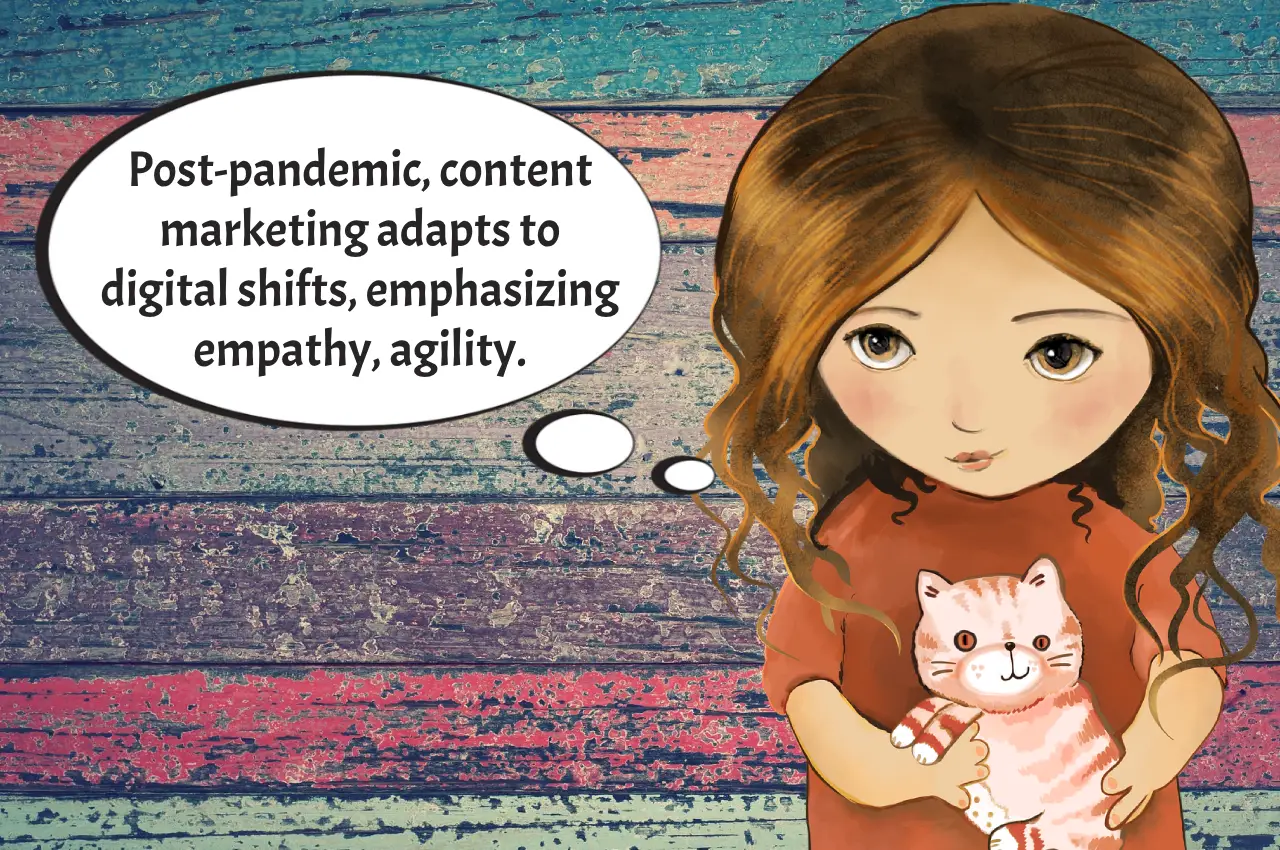In the wake of the pandemic, the dynamics of content marketing have undergone a significant transformation. Businesses across industries are grappling with the challenge of adapting to new consumer behaviors and market conditions. In this blog post, we’ll delve deeper into how the post-pandemic world is reshaping content marketing, exploring key strategies and actionable insights for businesses aiming to thrive in this changed environment.
Understanding the Shift in Consumer Behavior
The pandemic has brought about a seismic shift in consumer behavior, reshaping how individuals interact with brands and consume content. With lockdowns and social distancing measures in place, people have increasingly turned to digital channels for information, entertainment, and shopping. As a result, businesses have had to recalibrate their marketing strategies to meet the changing needs and expectations of their audience.
Adapting Content Strategies to Meet Changing Needs
In response to these shifts, businesses must adopt a more empathetic and customer-centric approach for reshaping content marketing. Consumers are seeking authentic connections with brands that understand their unique challenges and aspirations. By crafting content that speaks to their values and resonates on a personal level, businesses can foster deeper relationships with their audience and build brand loyalty.
Moreover, agility has become a cornerstone of effective content marketing in the post-pandemic landscape. With circumstances evolving rapidly, businesses must be prepared to pivot their strategies in response to changing market dynamics. This requires staying attuned to emerging trends, leveraging data-driven insights, and being willing to experiment with new approaches to content creation and distribution.
Embracing a Multichannel Approach
In the digital age, consumers engage with brands across a multitude of channels and touchpoints. To effectively reach and engage their target audience, businesses must adopt a holistic, multichannel approach for reshaping content marketing. This entails creating cohesive content experiences across platforms such as social media, email, blogs, and websites. This ensures a consistent brand presence and messaging strategy.
Furthermore, personalization has emerged as a key driver of consumer engagement and conversion in the post-pandemic era. By leveraging data analytics and AI-driven technologies, businesses can deliver highly relevant and tailored content experiences to individual users, enhancing engagement, and driving conversion rates.
Case Study: The Rise of Direct-to-Consumer Brands
One notable trend in the post-pandemic landscape is the ascent of direct-to-consumer (DTC) brands. These companies have disrupted traditional retail models by establishing direct relationships with consumers through digital channels. By prioritizing customer experience and community building, DTC brands have been able to cultivate loyal followings and drive significant business growth.
For instance, companies like Warby Parker and Casper have revolutionized their respective industries. They do this by offering high-quality products at accessible prices, backed by compelling storytelling and immersive digital experiences. Through innovative content marketing strategies, these brands have succeeded in capturing market share and establishing themselves as industry leaders.
Key Takeaways
As we navigate the complexities of a post-pandemic world, it’s imperative for businesses to reassess their strategies and embrace innovation for reshaping content marketing. By understanding the evolving needs and preferences of their audience, prioritizing authenticity and empathy, and leveraging data-driven insights, businesses can position themselves for sustained success in the new normal.
In conclusion, the post-pandemic landscape presents both challenges and opportunities for content marketers. By adopting a customer-centric, agile approach and investing in multichannel and personalized content experiences, businesses can drive meaningful engagement, foster brand loyalty, and ultimately achieve their growth objectives in a rapidly evolving digital ecosystem.
Now, we invite you to share your thoughts and experiences. How has your organization adapted its content marketing strategies in response to the pandemic? What challenges have you encountered, and what successes have you achieved? We look forward to hearing from you in the comments below.





